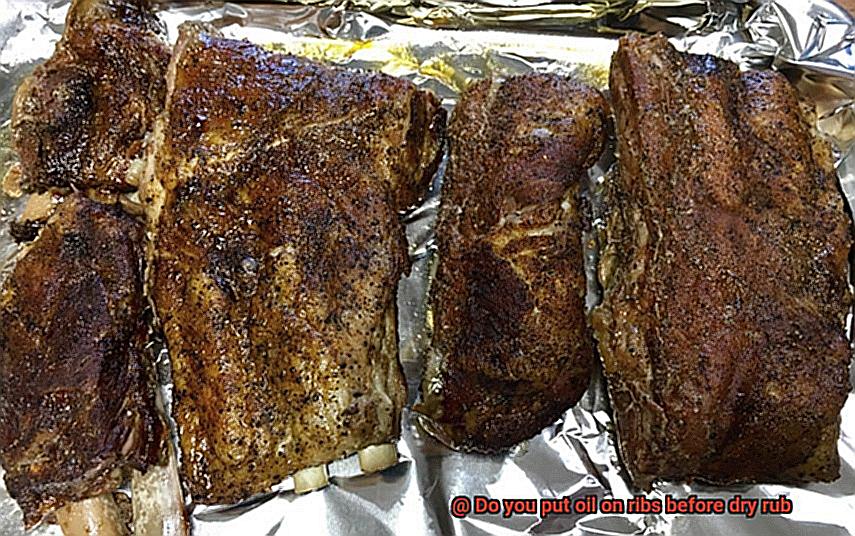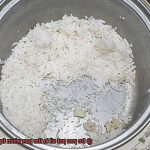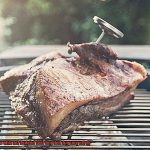Are you a meat lover who can’t resist the juicy, tender goodness of ribs? If so, you’re not alone. Ribs are a crowd-pleaser that can be prepared in various ways, from grilling to smoking and barbecuing. But before you start cooking your ribs, there’s an age-old question that needs answering – should you put oil on ribs before dry rub?
This dilemma has sparked heated debates among pitmasters, grill enthusiasts, and backyard chefs for years. Some swear by oil as it helps the rub stick to the meat better, while others argue that it creates a barrier that hinders the flavors’ penetration.
In this blog post, we’ll delve into this topic and explore both sides of the debate. We’ll share expert tips from seasoned chefs to help you achieve mouth-watering results regardless of your approach.
But we won’t stop there. We’ll also discuss how selecting the right cut of meat is crucial to achieving perfect ribs. Additionally, we’ll go over seasoning techniques and cooking methods that will take your rib game from amateur to pro.
So, grab your apron and let’s get started on uncovering whether or not oil should be used on ribs before applying dry rub. Get ready for some finger-licking goodness.
Contents
What is Dry Rub?
If you’re looking to take your meat to the next level, a dry rub is the perfect solution. But what exactly is a dry rub, and why should you use it?
In simple terms, a dry rub is a mixture of dry spices and herbs that are used to season meat before cooking. Unlike marinades or wet rubs, dry rubs don’t contain any liquid ingredients like oil or vinegar – hence the name “dry.” Instead, they’re made up of a blend of spices and herbs that add flavor and texture to your meat.
One of the best things about dry rubs is that they’re incredibly versatile. Depending on your personal preference and the type of meat you’re cooking, you can customize your dry rub with a variety of different ingredients.
Common spices include salt, black pepper, paprika, garlic powder, onion powder, cumin, chili powder, and brown sugar. By experimenting with different combinations of spices and herbs, you can create a unique flavor profile for your meat that’s perfectly tailored to your taste buds.
But what makes dry rubs so special? For starters, they add a ton of flavor to your meat without adding unnecessary calories or fat from liquid ingredients like oil. They also help create a crispy outer crust on the meat that’s packed with flavor. And because they’re so easy to use, they’re a great option for busy weeknights or impromptu barbecues.
When using a dry rub, it’s important to apply it evenly to the meat. You can do this by using your hands to massage the rub into the meat or by using a shaker or spoon to sprinkle it on.
Some people even recommend using oil before applying the rub to create a sticky surface for the seasoning to cling to. Once your meat is covered in the dry rub, simply grill or smoke it according to your preferred method.
Benefits of Using Oil Before Applying Dry Rub
This simple step can make a big difference in the final outcome of your ribs, and here’s why.
First and foremost, using oil helps the dry rub adhere better to the meat. Without it, the rub may simply fall off or not penetrate the meat as effectively. But with a layer of oil, the rub can stick and infuse into the meat, leading to better flavor and more even seasoning. It’s a crucial step for achieving maximum flavor potential.
But that’s not all- using oil can also help keep your ribs moist during cooking. We’ve all had dry, tough ribs before, and it’s not a pleasant experience. A layer of oil can act as a barrier and help lock in moisture, resulting in juicier and more tender meat. So not only will your ribs taste better, but they’ll also be more enjoyable to eat.
Another benefit of using oil before applying dry rub is that it can help with caramelization. When sugars in the rub caramelize, they create a delicious crust on the meat. But without an oil barrier, this crust can easily burn. Oil provides a medium for the sugar to stick to and creates a barrier that helps prevent burning. The result? A beautiful crust with tons of flavor.
It’s important to note that not all oils are created equal when it comes to using them for ribs. Some oils, like vegetable or canola oil, have a high smoke point and are good for high-heat cooking. Others, like olive oil, have a lower smoke point and may not be ideal for grilling or smoking. Be sure to choose an oil that is appropriate for your cooking method.
Disadvantages of Using Oil Before Applying Dry Rub
Before you reach for that bottle of oil to slather on before applying your dry rub, consider the potential drawbacks of this technique. While some people swear by it, using oil before applying dry rub can actually have several disadvantages.
Firstly, using oil can create a barrier between the meat and the dry rub, making it difficult for the rub to stick to the meat. As a result, you may end up with an uneven distribution of flavor on your finished product. Nobody wants that, right?
Not only does using oil affect the flavor and texture of your ribs, but it can also have safety implications. Oil is highly flammable, which means that if it drips onto the hot coals or flames of your grill, it can cause a dangerous flare-up. This not only poses a safety hazard but can also result in overcooked or burnt ribs.
Another disadvantage of using oil before applying dry rub is that it can lead to tougher meat. When you apply oil to meat before cooking it, it creates a barrier that prevents moisture from escaping. As a result, your ribs may come out dry and tough instead of tender and juicy.
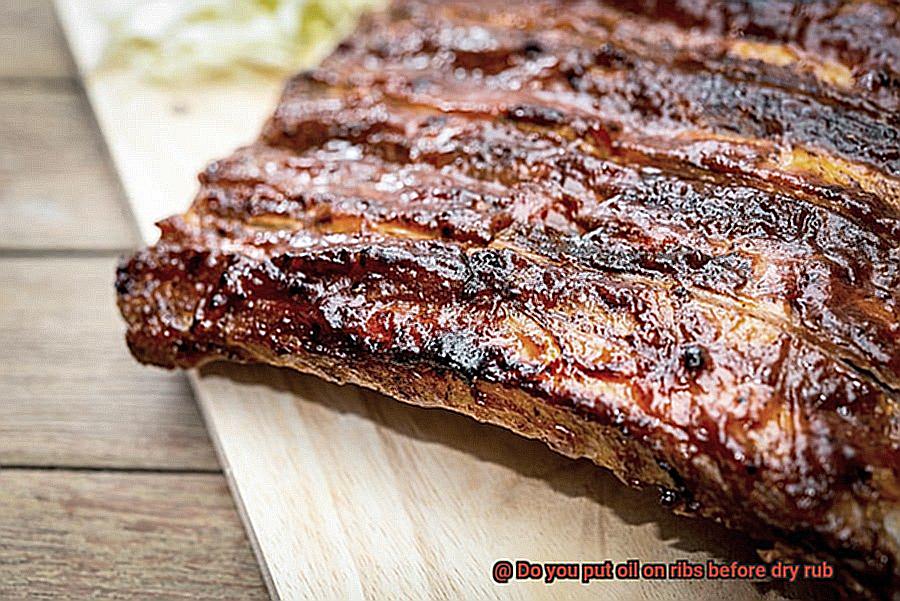
Finally, using oil before applying dry rub can add unnecessary fat and calories to your dish. Ribs are already a fatty cut of meat, and adding extra oil on top of that can make them even more unhealthy. By skipping the oil and focusing solely on the dry rub, you can still achieve delicious flavor without all the added fat.
Different Types of Oils to Use
When it comes to preparing ribs for the grill, applying oil before the dry rub is essential for optimal flavor and texture. There are various types of oils to choose from, each with its unique benefits and flavor profile. Here are the five most popular oils to use before grilling ribs.
Vegetable Oil
This neutral-tasting oil is a popular choice for its affordability and high smoke point. It’s versatile and works well for all types of ribs, including pork, beef, and lamb.
Olive Oil
Known for its health benefits, olive oil adds a subtle flavor to the meat. However, it may not pair well with certain seasoning blends due to its strong taste.
Sesame Oil
This oil has a distinct nutty taste that can add depth to your ribs’ flavor profile. A little goes a long way, so use it sparingly for an Asian-inspired twist on traditional BBQ.
Peanut Oil
For those who prefer a more robust flavor, peanut oil is an excellent option. It has a nutty taste and is great for adding an extra layer of flavor to the ribs. However, it’s more expensive than vegetable oil and may not be suitable for those with nut allergies.
Coconut Oil
A newer trend in the grilling world, coconut oil is perfect for those who want a tropical flavor profile. It has a sweet taste and can add a unique twist to traditional rib recipes.
When choosing an oil to use before applying the dry rub, it’s crucial to consider the smoke point of the oil. Oils with low smoke points, such as butter or extra virgin olive oil, can easily burn and create an unpleasant taste on the meat. Therefore, it’s best to stick with oils that have high smoke points to ensure that the ribs cook evenly and have a delicious flavor.
How to Apply Oil on Ribs Before Applying Dry Rub
Ribs are a classic and crowd-pleasing barbecue staple, but the key to making them truly mouthwatering is in the preparation. Applying oil before the dry rub is a simple yet crucial step that can make all the difference in creating tender and flavorful ribs. Here’s how to apply oil on ribs before applying dry rub like a pro.
Choose Your Oil Wisely:
The type of oil you use for your ribs can impact their flavor and texture. While neutral oils like vegetable or canola are popular choices, others may prefer to use olive oil for its added flavor. Regardless of your choice, it’s important to select an oil with a high smoke point to avoid burning during cooking.
Pat Your Ribs Dry:
Before applying the oil, make sure to pat your ribs dry with paper towels. This ensures that the dry rub will stick to the meat properly and prevents excess moisture from interfering with the flavors.
Apply Oil Evenly:
Using a brush or your hands, apply a thin layer of oil all over the surface of the ribs. Be sure to get into all the nooks and crannies, including between the bones. It’s essential not to overdo it with the oil as this can cause flare-ups on the grill.
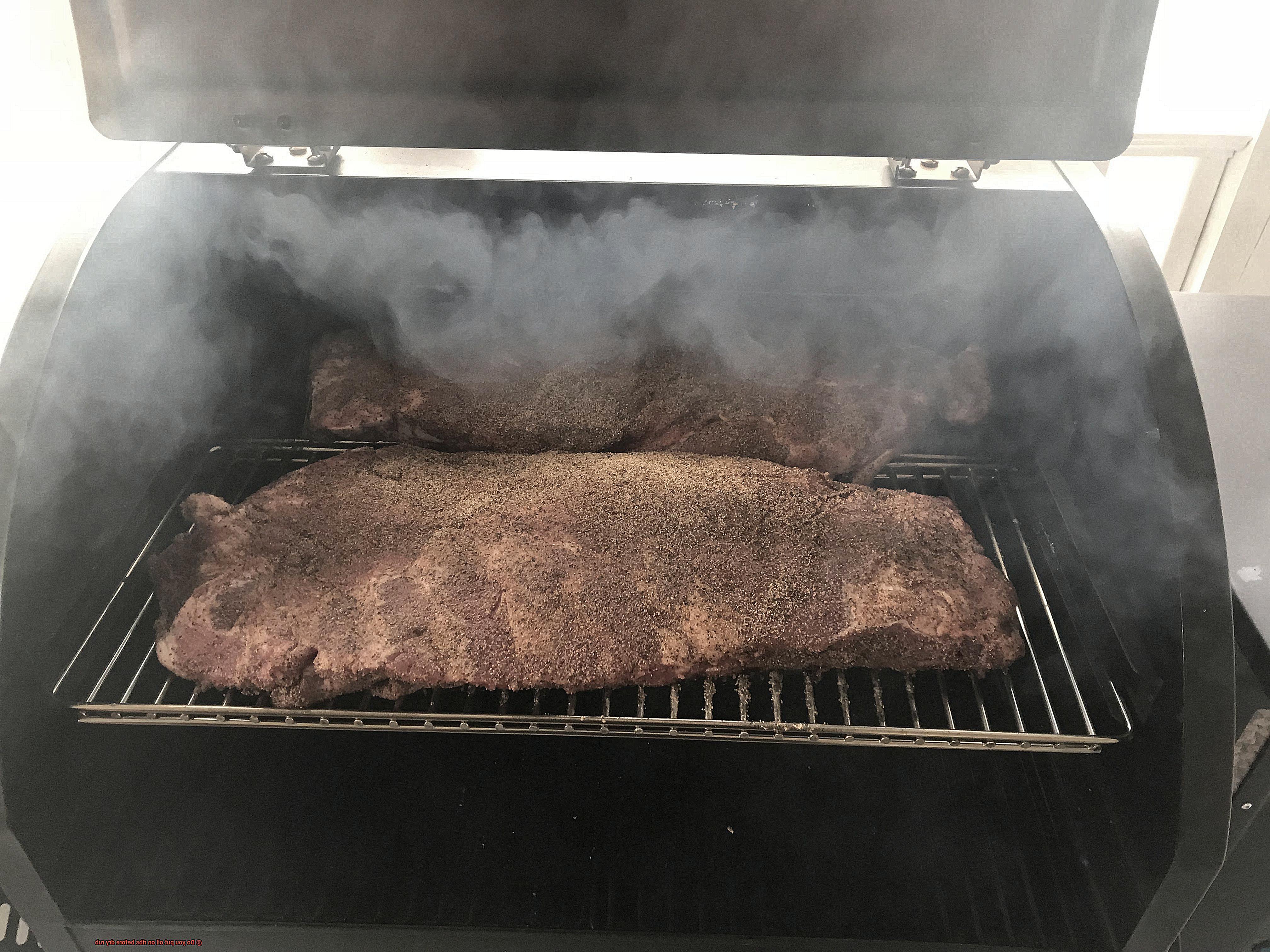
Add Your Dry Rub:
Once you’ve applied the oil, sprinkle your favorite dry rub generously over all sides of the ribs, making sure to pat it down firmly with your hands. The oil will help the dry rub adhere to the meat and create a delicious crust during grilling.
Let It Marinate:
After applying both oil and dry rub, let your ribs sit for a while so that they have time to absorb all of those mouthwatering flavors. This step is crucial in ensuring that your ribs are perfectly seasoned and tender when they hit the grill.
Tips for Getting the Best Results from Your Dry Rub
If you’re a fan of tender, flavorful ribs, then you’ll definitely want to try using dry rubs on your meat. Dry rubs add a unique blend of spices and herbs to your ribs that can take your barbecue game to the next level. However, getting the best results from your dry rub can be tricky. To help you out, we’ve compiled the following tips for getting the most out of your dry rub when grilling ribs.
The Oil Question
One of the most common questions people ask when using a dry rub is whether or not they should use oil on their ribs before applying the rub. The answer is that it depends on the type of rub you’re using and the result you want to achieve.
Some dry rubs are formulated to be used with oil, while others are meant to be applied directly to the meat. If you’re using a rub that requires oil, then be sure to apply it evenly over the surface of the meat before adding the dry rub.
Application is Key
To get an even flavor throughout your ribs, it’s important to apply the dry rub generously and evenly. Make sure that every inch of the meat is covered in the rub so that you get maximum flavor. Don’t be afraid to get your hands dirty and really work the rub into the meat.
Let It Marinate
After applying the rub, let your ribs sit for at least an hour before cooking so that the flavors have time to penetrate into the meat. This will allow all of those delicious flavors from the dry rub to really shine through.
Use Indirect Heat
When it comes to cooking your ribs with a dry rub, it’s important to use indirect heat. This means that you should place your ribs on an area of the grill where there are no flames directly underneath them. Instead, you want to cook them over low and slow heat, which will help to tenderize the meat and allow all of those delicious flavors from the dry rub to really shine through.
Experiment with Different Flavors
The beauty of dry rubs is that you can experiment with different combinations of spices and herbs to create your own unique flavors. Don’t be afraid to try new things and find what works best for you and your taste buds. You might just discover a new favorite flavor combination.
Alternatives to Oil When Preparing Ribs for a Dry Rub
There are plenty of alternatives that can help your dry rub stick to your ribs while adding extra flavor. Here are some options to consider:
- Mustard: This tangy condiment not only adds flavor but also acts as an adhesive for your dry rub. Simply slather a thin layer of mustard on the ribs before applying your dry rub mixture. You can also experiment with different types of mustard to find the perfect match for your taste buds.
- Worcestershire sauce: If you’re looking for a savory option, this sauce can add a rich umami flavor and help tenderize the meat. Brush on a light layer of Worcestershire sauce before applying your dry rub. Be careful not to use too much as it can overpower the taste.
- Water: For those who want to avoid using condiments altogether, water can be used as a substitute for oil. Simply moisten the ribs with water before applying the dry rub. This method helps the rub stick to the meat without adding any additional flavor.
- Honey or Maple Syrup: If you have a sweet tooth, these natural sweeteners can also be used as adhesives for your dry rub. They add subtle sweetness and help the dry rub stick to the meat. Brush on a light layer of honey or maple syrup before applying your dry rub. Be mindful not to use too much as it can make the ribs overly sweet.
Conclusion
In the world of barbecue, there are few topics as hotly debated as whether to use oil on ribs before applying dry rub. The issue has pitmasters, grill enthusiasts, and backyard chefs divided into two camps: those who swear by it and those who don’t.
While some argue that oil helps the rub stick to the meat better and keeps it moist during cooking, others contend that it creates a barrier that hinders flavor penetration and can lead to tougher meat. Ultimately, the decision to use oil is a personal one that depends on your preferences and the type of rub you’re using.
If you do choose to use oil, be sure to select an option with a high smoke point and apply it evenly over the surface of the meat before adding your dry rub. And remember: selecting the right cut of meat is crucial for achieving perfect ribs.
But what if you prefer not to use oil? Fear not. There are plenty of alternatives, such as mustard, Worcestershire sauce, water or natural sweeteners like honey or maple syrup. These options can help your dry rub stick while adding extra flavor.
By following these expert tips from seasoned chefs and experimenting with different combinations of spices and herbs in your dry rubs, you’ll take your rib game from amateur to pro in no time.

